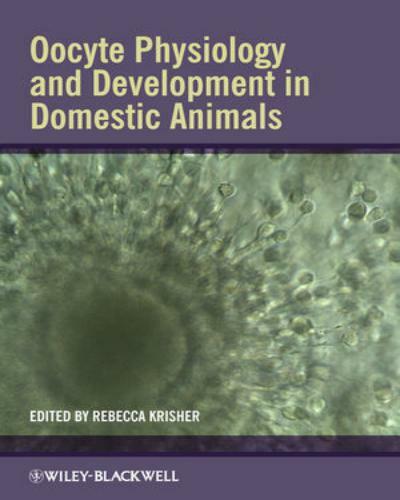Oocyte Physiology and Development in Domestic Animals reviews the most recent advances in the research of physiological and biochemical mechanisms underlying oocyte growth and development, providing readers with the fundamental understanding of these key processes and summarizing this important field of research.
Oocyte Physiology and Development in Domestic Animals
The book covers multiple molecular and physiological mechanisms including initiation of oocyte growth during folliculogenesis and in vitro follicle culture to support oocyte competence, that are critical to health and quality. Physiological process ranging from gene expression to metabolism will be covered with an eye toward using these factors to uncover bio-markers that will further advance the field. In addition, the text looks at the effects of in vitro maturation environments on oocyte quality and developmental outcome.
The oocyte is a fascinating cell. It is the foundation of embryonic growth, from a newly fertilized single cell zygote to a fully formed and functioning multi cellular organism capable of independent survival. As such, it is incredibly complex. The growth and maturation of the oocyte is itself a highly coordinated process, which can ultimately have long-term consequences for both female fertility and the health of resulting offspring. Our challenge has been and continues to be to understand oocyte physiology, and to elucidate the molecular mechanisms that control oocyte developmental competence.
One of the aims of this book is to present a comprehensive overview that summarizes our current scientific knowledge of oocyte physiological and biochemical mechanisms.
Last, but certainly not least, it is my hope that this information will stimulate conversation, collaboration, and critical thinking among current and future scientists, consequently encouraging development and advancement in this exciting field of research.
Password: pdflibrary.net

